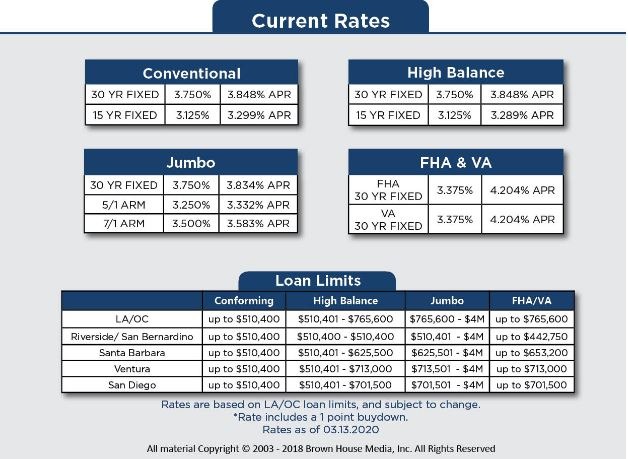Once again, the coronavirus dominated financial market news this week and caused nearly unprecedented daily movements. While stocks posted enormous losses, bonds lost some of their appeal as an alternative, and mortgage rates rose roughly one-half percent from recent record low levels.
Since the outbreak of the coronavirus, investors generally have reduced risk in their portfolios by selling stocks and buying bonds, including mortgage-backed securities (MBS). This added demand for MBS helped mortgage rates decline. The heavy selling in the stock market continued this week, but it appears that many investors are hesitant to purchase bonds at current low yields and are instead choosing to let assets remain in cash. Part of the reluctance to buy them is due to expectations for additional government fiscal stimulus (see below), which would be funded by increased issuance of Treasuries. A larger supply of bonds would push yields higher.
Economists widely agree that the appropriate response to help offset the economic effects of the coronavirus involves both fiscal stimulus from governments and monetary stimulus from central banks. While the proposed government action will take some time to implement, global central banks quickly added monetary stimulus this week. The US Fed expanded its bond purchase program and provided much needed liquidity. The European Central Bank (ECB) held rates steady at Thursday’s meeting but provided additional lending programs to support troubled businesses.
The most significant economic report released this week indicated that core inflation has remained stable in recent months, as expected. The Consumer Price Index (CPI) is a widely followed monthly indicator that looks at the price change for goods and services. In February, core CPI, which excludes the volatile food and energy components, was 2.4% higher than a year ago, up from an annual rate of increase of 2.3% as last month.



